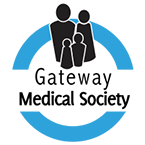
Coronavirus Facts
A Brief Timeline
The novel coronavirus was first identified in December 31, 2019 and reported to the World Health Organization by Chinese authorities when a string of pneumonia-like cases surfaced in the city of Wuhan.
By March 11, 2020 the World Health Organization declared the virus a Pandemic. And on March 13th the United States declared the outbreak to be a National Emergency.
Why Has COVID 19 Spread so rapidly?
The human population has not seen this particular coronavirus before (aka novel coronavirus) so there is no natural immunity.
Coronaviruses have infected people in the past. They are responsible for the common cold which usually causes mild illness. However there have been other coronaviruses that have caused severe illness: SARS-COV1 in 2003 and MERS-COV in 2012. These are coronaviruses that started inside an animal (MERS or Middle East Respiratory Syndrome was likely camels) then infect humans.
SARS-COV2, is the virus that causes the illness COVID 19.
SARS-COV2 is suspected to have come from bats or pangolins in Wuhan, China.
SARS stands for Severe Acute Respiratory Syndrome.
COV2 stands for Corona Virus and it is the second one.
How does COVID-19 infection spread?
Inhaling respiratory (saliva or nasal) droplets from an infected person who coughs, sneezes or even talks.
Touching surfaces contaminated with the virus and then touching your eyes, nose or mouth.
Many people with COVID-19 do not have symptoms (asymptomatic) but are able to infect you.
In addition to basic health and hygiene practices, like handwashing, CDC recommends some prevention actions at all COVID-19 Community Levels, which include:
- Staying Up to Date with COVID-19 Vaccines
- Improving Ventilation
- Getting Tested for COVID-19 If Needed
- Following Recommendations for What to Do If You Have Been Exposed
- Staying Home If You Have Suspected or Confirmed COVID-19
- Seeking Treatment If You Have COVID-19 and Are at High Risk of Getting Very Sick
- Avoiding Contact with People Who Have Suspected or Confirmed COVID-19
https://www.cdc.gov/coronavirus/2019-ncov/prevent-getting-sick/prevention.html
What are the symptoms of COVID-19 infection?
Symptoms may appear 2-14 days after exposure to the virus which includes:
- Cough
- Shortness of breath or difficulty breathing
- Or at least two of these symptoms:
- Fever
- Chills
- Repeated shaking with chills
- Muscle pain
- Headache
- Sore throat
- New loss of taste or smell
- Diarrhea
- Decreased appetite
- Nausea
Who is at risk for severe illness?
- People 65 years and older
- People who live in a nursing home or long-term care facility
- People of all ages with underlying medical conditions, particularly if not
well controlled, including:
- People with chronic lung disease or moderate to severe asthma
- People who have high blood pressure and other serious heart conditions
- People who are immunocompromised
- Many conditions can cause a person to be immunocompromised, including cancer treatment, smoking, bone marrow or organ transplantation, immune deficiencies, poorly controlled HIV or AIDS, and prolonged use of corticosteroids and other immune weakening medications
- People with severe obesity
- People with diabetes
- People with chronic kidney disease undergoing dialysis
- People with liver disease
What should you do if you think you have COVID-19?
- Stay home except to get medical care
- Stay home. Many people with COVID-19 have mild illness and can recover at home without medical care. Do not leave your home, except to get medical care. Do not visit public areas
- Take care of yourself. Get rest and stay hydrated. Take over-the-counter medicines, such as acetaminophen, to help you feel better
- Stay in touch with your doctor. Call before you get medical care. Be sure to get care if you have trouble breathing, or if you think it is an emergency
- Avoid public transportation, ride-sharing, or taxis
If you have any of these emergency warning signs* for COVID-19 get medical attention immediately:
- Trouble breathing
- Persistent pain or pressure in the chest
- New confusion or inability to arouse
- Bluish lips or face
- *This list is not all inclusive. Please consult your medical provider for any other symptoms that are severe or concerning to you
- Call 911 if you have a medical emergency: Notify the operator that you have, or think you might have, COVID-19. If possible, put on a cloth face covering before medical help arrives
